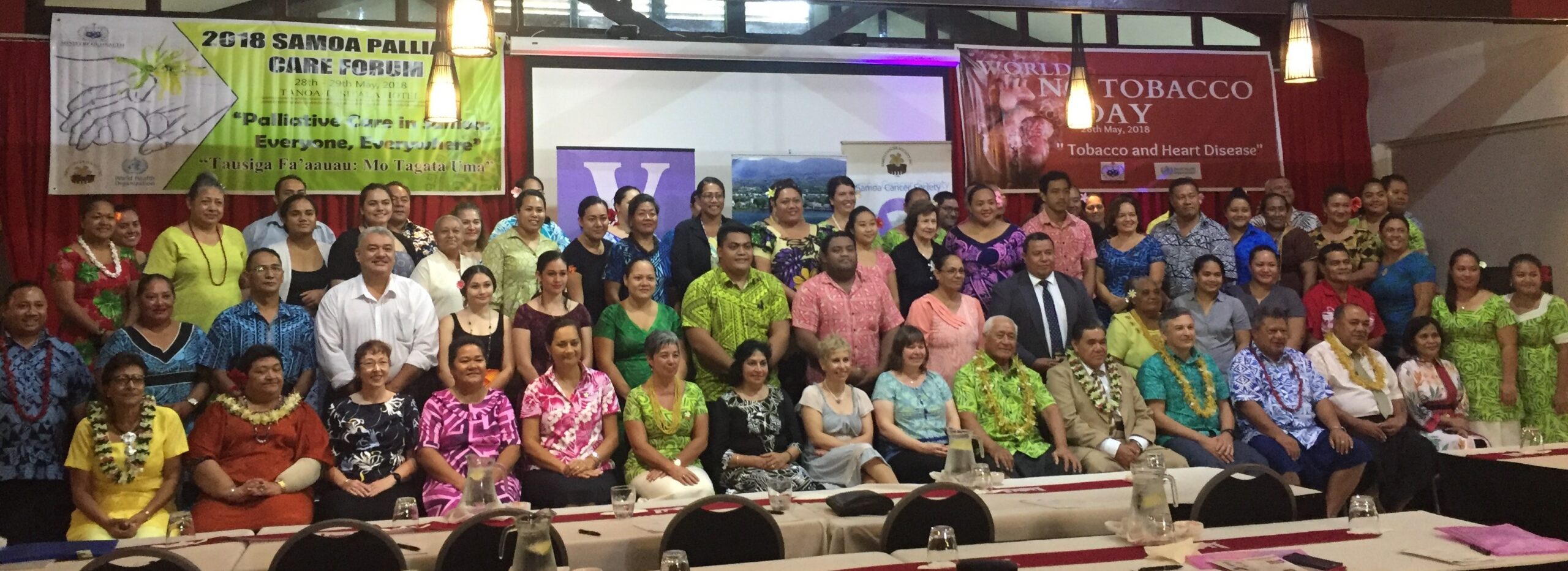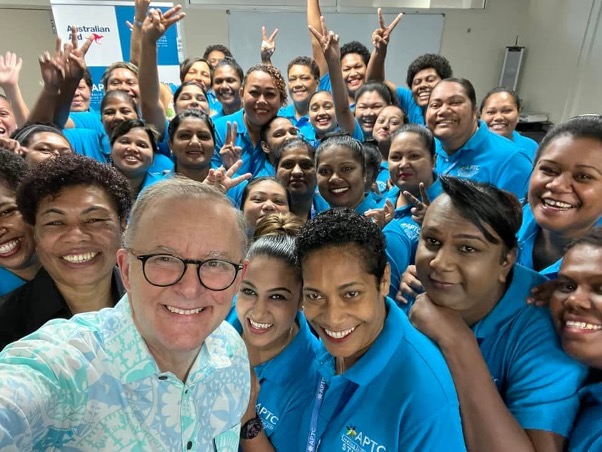As I discussed here, the 2017 Lancet Commission speaks of a global “access abyss” in palliative care. Throughout the Pacific people are coping with a myriad of health conditions that cause serious suffering. This is the serious health-related suffering that palliative care can ease. Global mapping exercises indicate there is little palliative care action underway in Pacific island countries and territories (PICT). But to really understand what is happening, more specific, qualitative explorations are necessary. My initial research began this process of accreting more information to inform future action and research.
Before discussing this research further, I want to acknowledge the individuals experiencing serious health-related suffering, and their families and friends, who every day do their best to manage complicated health care needs that span the physical, spiritual, emotional, social, psychological and economic realms of life. Palliative care needs can be all-encompassing, and demand holistic, wrap-around responses from a variety of disciplinary perspectives. Yet, family and friends provide the majority of palliative care, in the home, with little support.
I also want to acknowledge the dedicated individuals working in community organisations, churches, health care services and health ministries, routinely confronted with the challenge of trying to alleviate serious health-related suffering and doing what they can in resource-scarce contexts. They too need much more support.
A literature review for my initial research exposed no publications on palliative care in the Pacific, but highlighted a disease profile across the Pacific that creates significant levels of serious health-related suffering. Despite this need for palliative care, I found little attention to palliative care in regional plans or organisations, or in the Australian and New Zealand aid programs.
What I did discover were active collegial networks, delivering small but important palliative care training and support activities. The Essential Pain Management module, provided in every PICT, has helped to create linkages between individual palliative care specialists, particularly based in New Zealand, and health professionals in PICTs who want to expand palliative care. There are some established organisations that support this work, such as Australasian Palliative Link International, the Australian and New Zealand Society of Palliative Medicine Pacific Working Group, and the New Zealand National Child Cancer Network Pacific Working Group. There are also individual specialists, sometimes self-funded, who work to support colleagues in various countries across the Pacific.
In some countries, community groups are leading the way. For example, in 2018 the Samoa Cancer Society hosted a palliative care forum, bringing together all the key stakeholders in the country to discuss palliative care and agree on a way forward to create national palliative care guidelines. The Fiji Cancer Society provides a home-based palliative care nurse and is planning to undertake training for community-level health professionals and families about how to care for somebody at home, supported by colleagues in New Zealand. In Vanuatu, the Butterfly Trust has done some work on palliative care. Meanwhile, in PNG, Sister Tarcisia Hunhoff, a member of the Missionary Sisters, Servants of the Holy Spirit, has obtained government support and DFAT funding (AU $3.5 million) for The Supportive Living Project, which includes the construction of a hospice in Port Moresby.
Donors and multilateral and regional agencies have an essential role to play in alleviating suffering. More funding is essential, preferably through a regional action plan. It can be challenging for individual clinicians to advance palliative care in their countries, and regional agencies can provide leadership to support local action. Donors, multilaterals and regional agencies could mobilise and expand training, coaching and mentoring; nurture and grow existing collegial networks; and fund further research.
My report provides several suggestions for further research. Most important is research into regional and country-level opioid systems. A basic mainstay for palliative care is access to fast-acting oral and injectable morphine. As a nurse in Australia or New Zealand, I would have at hand many different types of opioid pain relief: liquid, tablet, injectable, sachet, lozenge, sub-lingual and patch, both slow-release and fast-acting. In contrast, several interviewees from the Pacific spoke of paracetamol as the only available pain relief, particularly for people in rural areas. This must be rectified, starting with a clear analysis of what the issues are regarding opioid pain relief in each country.
Research with people experiencing serious health-related suffering and their families is also necessary to gain an understanding of their priority needs. One potential approach is to develop a palliative outcome scale. This would provide a useful tool for assessing patients’ and families’ needs, supporting staff to provide tailored and appropriate care, and to subsequently assess this care. The African Palliative Outcome Scale (also here) could offer useful lessons on how to go about this.
My initial research found people already working to improve palliative care in various PICTs, but a disease profile that indicates that donors, multilaterals and regional agencies need to deepen their focus on palliative care. This is beginning to occur. This research contributes to these discussions, and provides information to ensure that existing strengths are built on, and that holistic community-based palliative care can be nurtured across the Pacific.
Read the full report, as well as the companion discussion paper on palliative care in Solomon Islands and related blog.






Hi,
Thanks for sharing this information. There are some conferences happening in which medical specialty would be Hospice and Palliative Medicine and here is one of those conferences the conference details are given below.
The University of Texas MD Anderson Cancer Center Organizing Hospice and Palliative Medicine and Intensive Physician Board Review Course 2019 for 24.00 AMA PRA Category 1 Credits™ held from Sep 24 – 26, 2019 at Houston, Texas, USA
For more information please follow the below link:
https://www.emedevents.com/c/medical-conferences-2019/updates-in-hospice-and-palliative-medicine-intensive-physician-board-review-2019